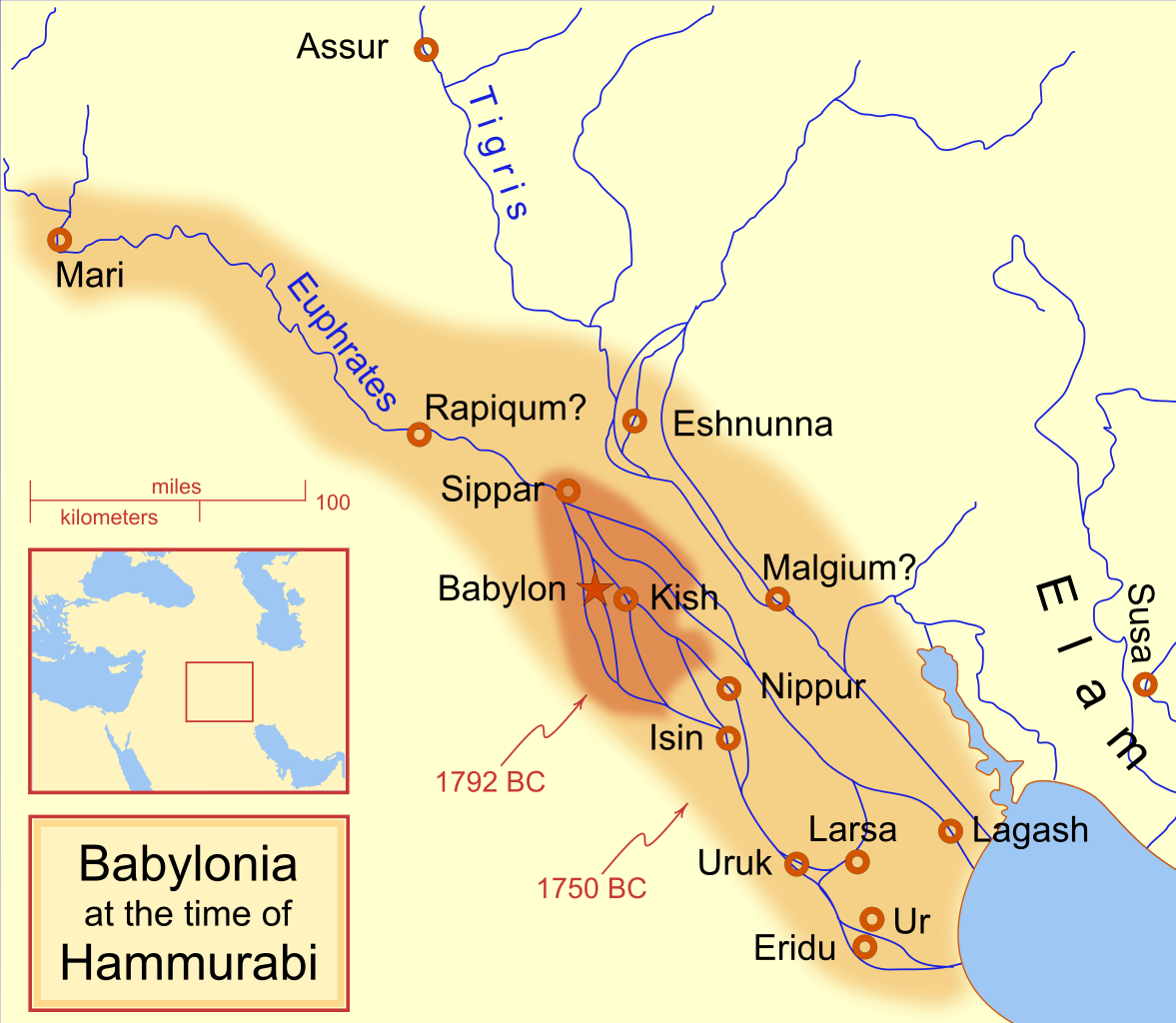Law is a cornerstone of civilization. So, this week I wanted to give a shout out to one of the oldest and most influential law texts of all time, the Code of Hammurabi:
Officially consisting of 282 laws (although there is no 13th Law because, then as now, the number 13 was considered to be unlucky), the Code of Hammurabi is a monumental achievement. Not only is the Code both one of the earliest forms of law and one of the earliest examples of lengthy writing, it stands for the notion that human behavior should be regulated with justice and fairness (for example, the Code contains one of the earliest examples of the presumption of innocence), although Babylonian notions of "justice" and "fairness" were different from modern views.
In addition, the Code supported the notion that the law is meant to be open and accessible: the Code was written in Akkadian, the daily language of Babylon, and was inscribed on a stele and placed out in public, so any literate person could read it. Over half of the Code covers commercial transactions, and a third deals with family matters but the text is far ranging and it also is one of the earliest examples of a fundamental law (i.e., a constitution).
Named after the great Babylonian king who extended Babylon's control throughout Mesopotamia, the Code of Hammurabi was enacted because Hammurabi had conquered many disparate peoples and wanted to have a uniform set of laws to help administer and unify his new empire.
One of the most famous (and misunderstood) laws in the Code is #196: "If a man destroy the eye of another man, they shall destroy his eye." However, the purpose of the law was to *RESTRICT* compensation to the value of the loss. Thus, it is more accurately read as "only one eye for one eye."
My favorite law from the Code is #5:
If a judge try a case, reach a decision, and present his judgment in writing; if later error shall appear in his decision, and it be through his own fault, then he shall pay twelve times the fine set by him in the case, and he shall be publicly removed from the judge's bench, and never again shall he sit there to render judgement.
Government accountability is always a good thing.
Written nearly four millennia ago, the Code of Hammurabi has long since passed into the public domain and several English-language translations can be found here.



No comments:
Post a Comment